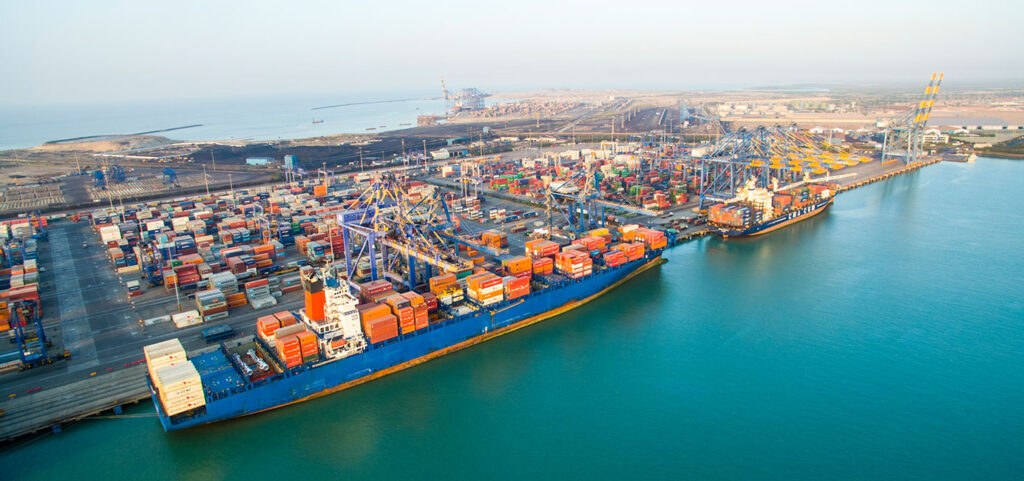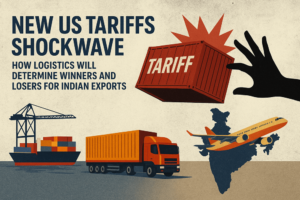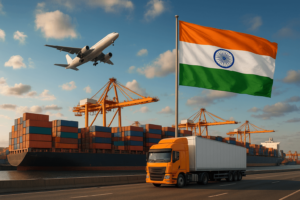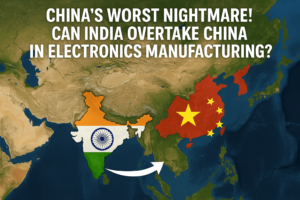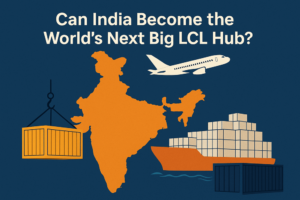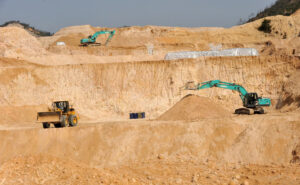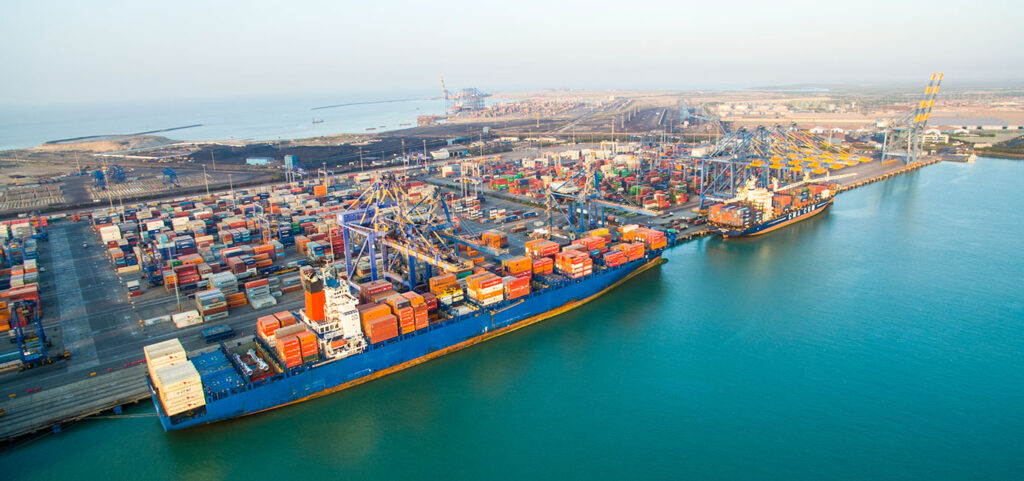
India’s freight forwarding industry is undergoing a seismic shift, and the epicenter is Adani Ports and Special Economic Zone (APSEZ). With the launch of its end-to-end freight forwarding services, Adani is stepping into the ring with global giants like DHL, Maersk, and DB Schenker.
But what does this mean for the 15,000+ MSME freight forwarders that power the heart of India’s logistics sector?
Let’s unpack the implications of this game-changing move.
India’s Freight Forwarding Landscape: A Fragmented Powerhouse
India’s freight forwarding market is vast yet fragmented:
- 70% market share is currently held by multinational logistics corporations like DHL, DB Schenker, and Panalpina.
- Indian MSMEs—numbering over 15,000—handle customs clearance, last-mile delivery, and localized cargo movement.
Despite their size, MSMEs are the backbone of India’s EXIM ecosystem, enabling millions of shipments across the country.
Enter Adani: Building an Integrated Logistics Ecosystem
Adani Group’s freight forwarding foray is not a standalone venture. It’s built on an already massive infrastructure:
- 45.5% share in container handling at Indian ports
- Air cargo terminals at key airports
- 132 railway rakes, 12 multi-modal logistics parks, and 3.1 million sq. ft. of warehousing space
With its new Trucking Management System (TMS) and International Freight Network (IFN) platforms, Adani is offering port-to-doorstep logistics services, negotiating better ocean freight rates, and optimizing inland connectivity.
This creates a vertically integrated model that rivals the best in the world—and sets a new benchmark in Indian freight forwarding.
The Opportunity and the Threat for MSMEs
This bold move is a double-edged sword for MSME freight forwarders:
✅ Opportunities:
- Access to better rates through Adani’s scale
- Integration with cutting-edge digital platforms
- Wider reach through multimodal logistics parks and IFN
⚠️ Threats:
- Risk of being squeezed out in hinterland and containerized segments
- Increased competition on pricing and service timelines
- Pressure to adopt digital tools quickly or risk becoming irrelevant
The bigger question: Will India become like Germany or the U.S., where logistics is controlled by a few big players?
Experts Say: There’s Room for All—But Only If MSMEs Evolve
India’s vast geography and diverse trade routes mean that MSMEs will continue to play a critical role. However, scale and digital adoption will decide who survives and thrives.
MSMEs must:
- Embrace digital freight forwarding tools
- Form strategic partnerships with integrated players like Adani
- Specialize in niche logistics services like temperature-controlled freight or e-commerce fulfillment
DHL, Maersk, and Global Giants Are Watching Closely
Global freight leaders aren’t backing off either. DHL, for instance, is:
- Investing $250+ million in India
- Expanding air and ground infrastructure
- Targeting India as a top 10 global market within five years
As supply chains shift away from China, India is becoming the next big hub—and everyone wants a slice.
Adani is focusing on bulk, containerized cargo, and inland logistics, while DHL may double down on express delivery, e-commerce, and specialized cargo.
What’s Next? India’s Logistics Market Outlook
With 12–15% annual growth expected in India’s freight forwarding sector, driven by:
- Export boom
- Infrastructure upgrades
- Digital transformation
…the market is ripe for both consolidation and innovation.
Expect to see:
- Fewer but stronger players
- Rising collaborations between MSMEs and integrators
- Higher service quality and transparency for exporters/importers
What Should MSMEs and Businesses Do?
If You’re an MSME Freight Forwarder:
- Digitize operations now
- Collaborate with larger ecosystems like Adani’s
- Find a niche or specialization that sets you apart
If You’re an Exporter or Importer:
- Expect better service reliability, competitive pricing, and integrated logistics
If You’re an International Logistics Player:
- Gear up for stiff competition in India’s fast-evolving market
Adani’s freight forwarding play is poised to reshape India’s logistics sector. The outcome will depend on how well MSMEs adapt and whether competition remains inclusive.
The future of freight in India could mirror the West—or it could become a hybrid model, where tech-savvy MSMEs and large integrated players thrive side by side.
